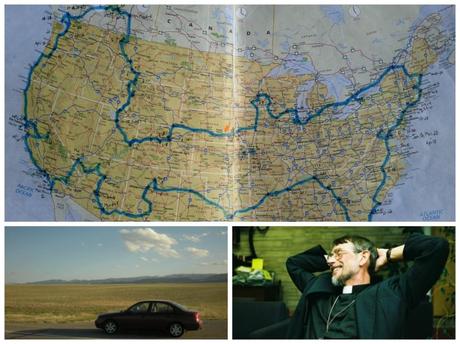As the van pulled away, I stood on the porch of my Nebraska home and wondered what life would be like now that I was fatherless. After three years of watching him suffer through chemo, radiation and surgery, I came home to see a hospice van sitting in my driveway, and knew it was over. I was just 19 when cancer took my dad.
But the premature loss wasn’t exclusively mine. Only 58-years-old when he passed, my dad should have had plenty of quality years left. He loved his job as a pastor, he loved his family, and he loved long road trips, something he was looking forward to doing a lot more in retirement.
But he never got to experience that retirement. He never got to use any of the money he’d saved, never got to live in the Florida retirement house he’d built with his own hands, and never got to spend those hot southern afternoons tinkering with his beloved 2001 Hyundai Elantra — which he planned to keep running deep into those post-work years.
Working as a pastor meant that my father’s service to God far surpassed any adoration for money. So a few days after his funeral, instead of stock options or a house, I inherited that Elantra — tattered from years of prairie hail storms and matured to 68,000 miles. Staring at the model-car he kept by the odometer and smelling the lingering fumes of his pipe, I didn’t exactly know what to do with my dad’s Elantra.
So I drove.
I got in the car and took my first independent road trip. It was the only thing I could do to both honor my dad and escape the overwhelming pain and death at home.
As I barreled down the interstate, hands tightly wrapped around the wheel, I noticed something other than the posted speed limits.
I was slowly being overtaken by the transformative power of travel.
With every visit to a friend, arrival in a new city, or vista seen over the hood of my car, my body couldn’t help but physically react.
My grip on the wheel loosened, and so did the hold of my mental agony.
I allowed my heart to once again experience joy, and with it, opened my mind to the inspiration of the road. An open road which provided all the answers I couldn’t find at home.
What I learned on that trip, and on the successive twelve road trips I’ve since taken in that same car, was that life is too short to delay your dreams. Retirement is not guaranteed. 50 is not guaranteed. Tomorrow is not guaranteed; so you better make today everything you want it to be.
The culmination of this understanding came as I was wrapping up my final year of graduate school, six years after my father’s death. I had just spent the past seven years focused on my professional life, and decided it was time to take one year for me, one for my personal life. Like my dad, I might never make it to retirement, so I needed to take advantage of the life I had today — there may never be another chance to do the things one spends years kicking down the road, waiting for “the right time.”
So I retired. Right then and there, at age 25, I retired. I finished graduate school, climbed in that same Hyundai Elantra, and spent nine months driving 16,400 miles around North America — living the life my father never got to.
But he was there with me. When I accelerated over a hill to see a sunset descending on the horizon, he was there. When I stared towards the Atlantic and swept sand from my floor mat, he was there. And when I drove through the middle of a storm, praying for safety as I struggled to see the road in front of me, he was there.
He was also there, like on my first road trip, as America’s roads taught me how to best live the life I still had. Those roads allowed me to see all the sights I’d spent years only dreaming about. They took me to visit every person I’d come to love over my 25 years. And lastly, America’s roads inspired my spirit. They showed me how to laugh harder, dream bigger, and love deeper. And that’s something I will take with me for whatever days I have left to enjoy this earth.
Tomorrow is not guaranteed; only today is. So take to the road and experience your dream journeys — now. Life is too short to wait.


